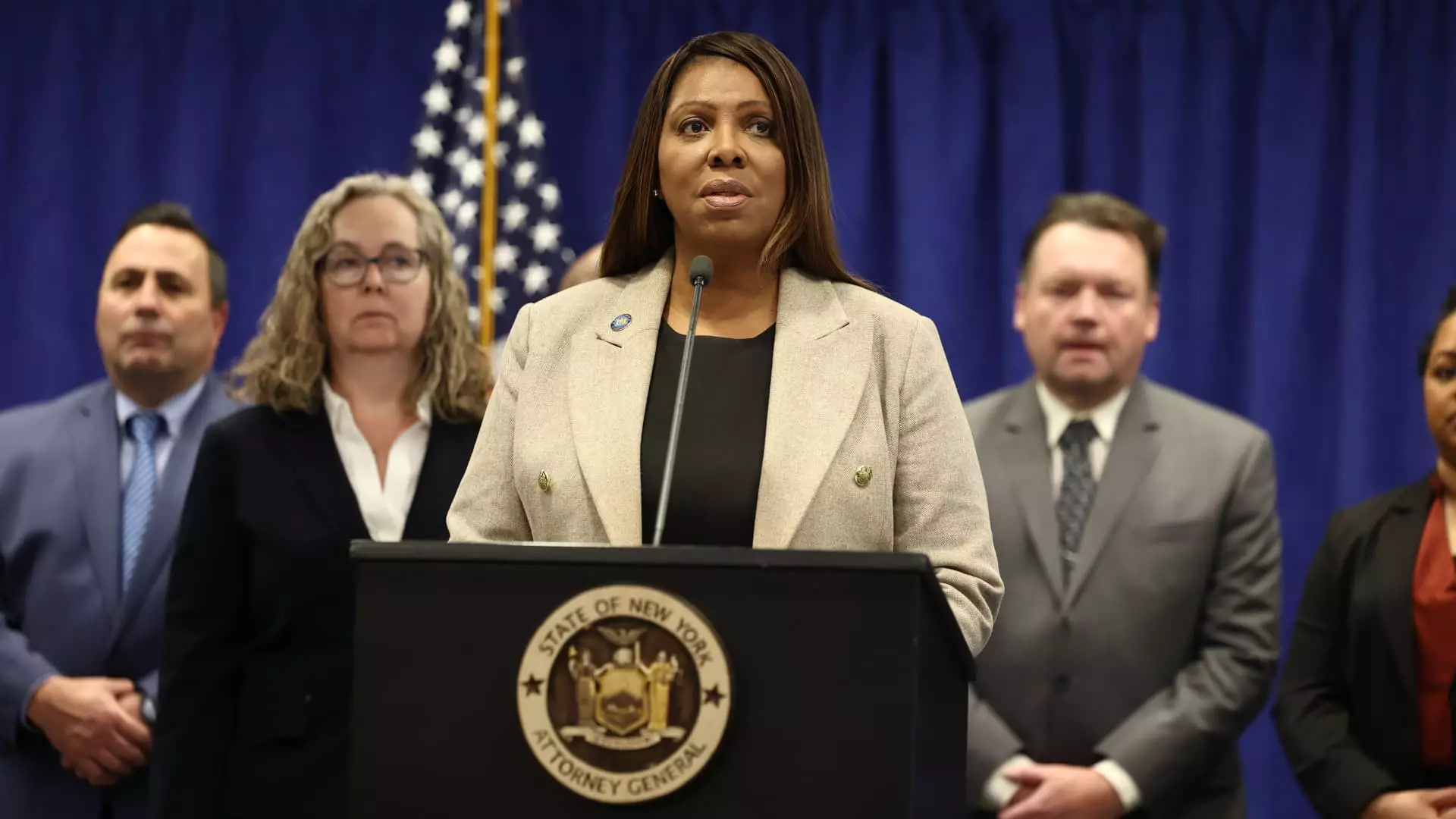In a timely response to rampant consumer exploitation, New York Attorney General Letitia James has unveiled a groundbreaking legislative proposal known as the Fostering Affordability and Integrity through Reasonable Business Act, or the FAIR Business Practices Act. With a provision aimed specifically at shielding small businesses and consumers from the nefarious tactics of lenders, debt collectors, and healthcare firms, this initiative seeks to advance the state’s consumer protection laws, which have remained largely unchanged since 1970. The urgency of this reform has been underscored by developments at the federal level, where the Consumer Financial Protection Bureau (CFPB) has faced significant operational setbacks under the current administration.
Filling the Federal Void
As the CFPB becomes increasingly incapacitated—having witnessed significant staff reductions and operational paralysis—state-level interventions like the FAIR Business Practices Act are crucial. The legislation comes as a vital safety net for New Yorkers, allowing them to seek redress in areas where federal oversight has faltered. With large-scale layoffs and a freezing of essential functions, the federal agency is no longer equipped to protect consumers. Therefore, states such as New York must take proactive steps to fill this watchdog role, ensuring that residents are not left defenseless against unscrupulous tactics that prey on their vulnerabilities.
Empowerment Through Legislation
James’s bill arises from a clear recognition of the numerous predatory practices that currently exist. For example, the bill targets outrageous obstacles that companies impose when consumers wish to cancel subscriptions, emphasizing that such practices can feel unnecessarily convoluted and overwhelming. Furthermore, it addresses troubling issues like debt collectors’ questionable behaviors, including the troubling practice of seizing social security benefits. With this legislation, the power shifts back to the consumers, providing them with the necessary legal tools to challenge unfair practices.
One of the significant components of the proposed act is its comprehensive approach to addressing unfair lending practices. Car loans, mortgages, and student loans will all be scrutinized to ensure that consumers aren’t diverted towards high-interest loans that create a cycle of debt and financial hardship. It’s a recognition that individuals often lack the expertise and resources to navigate these complex systems, and without adequate protections, they remain at the mercy of predatory institutions.
Broader Implications for State Law and Economy
The implications of the FAIR Business Practices Act extend beyond individual consumer protections. By empowering the office of the Attorney General to actively pursue legal action against violators, it sends a clear message to businesses that unethical behavior will not be tolerated. This could lay the groundwork for a more equitable economic landscape, fostering an environment where honest businesses can thrive without being undercut by those employing dubious tactics.
Support from key figures in former President Joe Biden’s administration, including ex-CFPB director Rohit Chopra and former FTC Chair Lina Khan, underscores the importance of robust state intervention in consumer protection. Their endorsement signifies a broader acknowledgement that the fight against corruption and exploitation must be multifaceted, involving not just federal efforts but also strong state-level initiatives.
Building a Safer Consumer Environment
With the FAIR Business Practices Act, New York is not only addressing immediate consumer concerns but is also setting a precedent for other states to follow. It dares to challenge the status quo and invites a larger conversation about consumer rights and corporate responsibility. Ensuring that businesses adhere to ethical practices while protecting the most vulnerable members of society is not merely a legislative goal; it’s a moral imperative.
Furthermore, this push for stronger protections reflects a growing consumer consciousness, with citizens increasingly demanding accountability from those in power. As New Yorkers rally around this crucial legislation, it signals a collective awakening regarding consumer rights and protections that transcends party lines. Through awareness and action, a safer and more equitable consumer environment is not just a possibility—it’s an expectation.
James’s bill embodies the essence of empowerment, standing as a vital bulwark against exploitation in a rapidly changing economic landscape. As this initiative moves forward, it has the potential for far-reaching effects that could reshape how business is conducted across the state and beyond.

